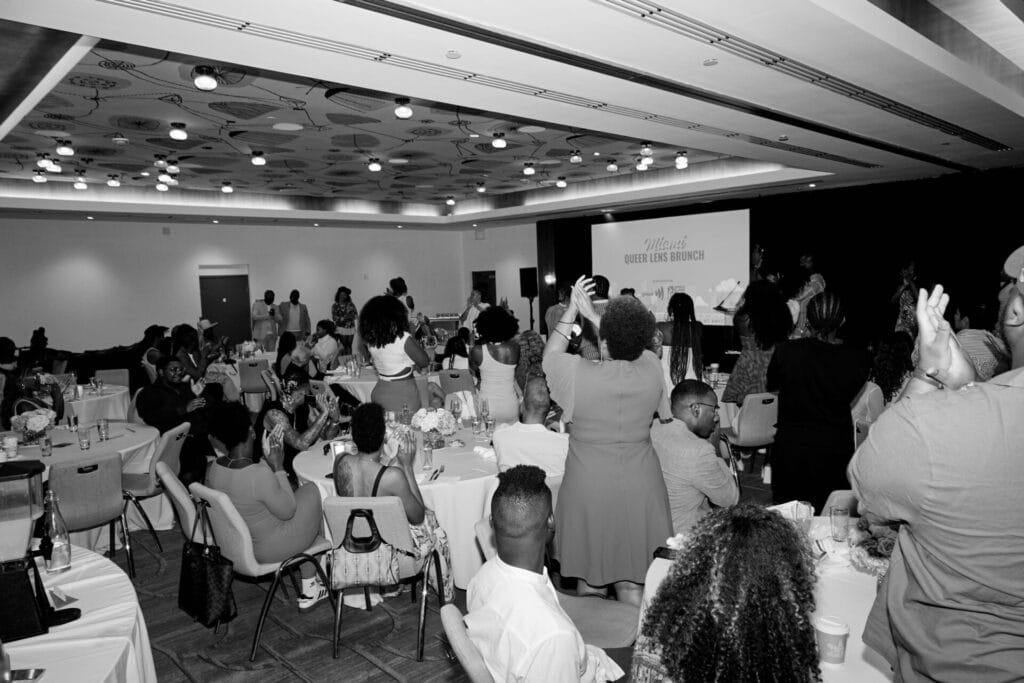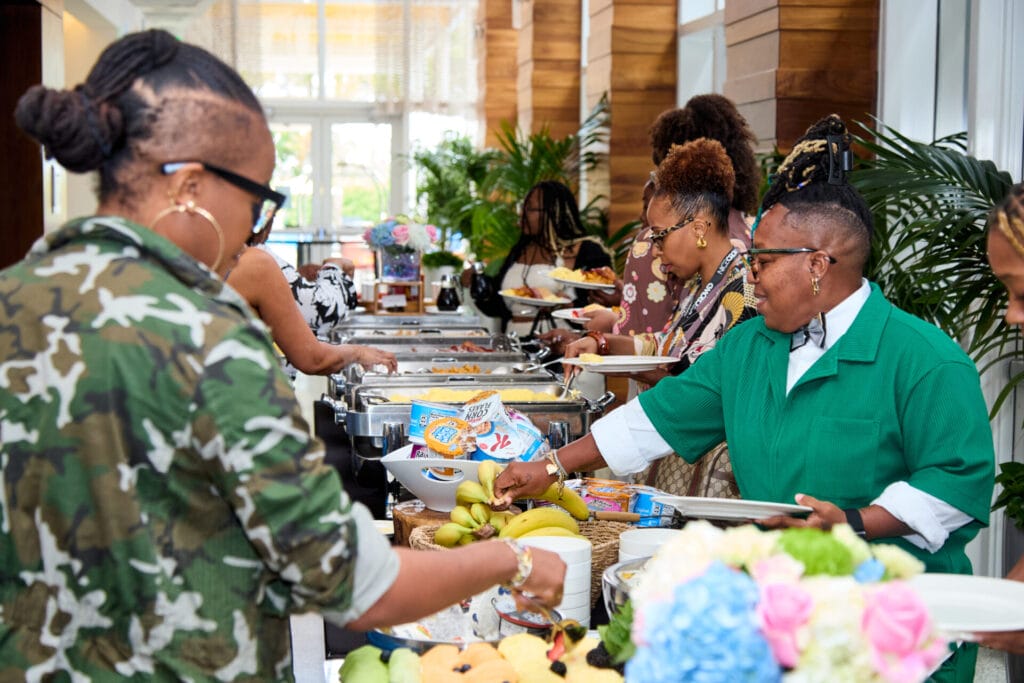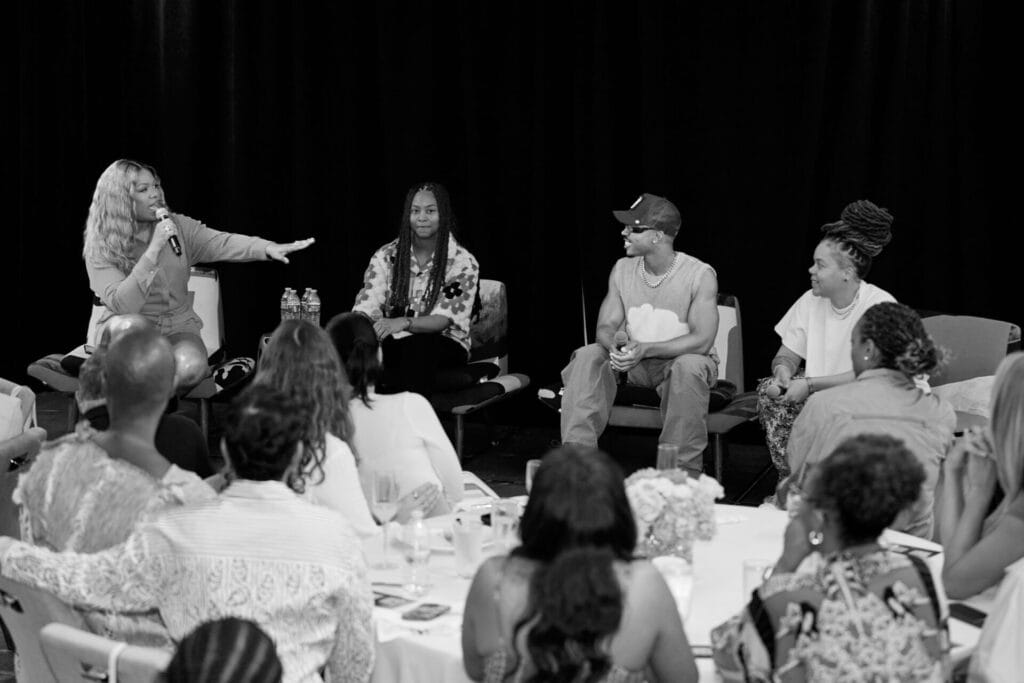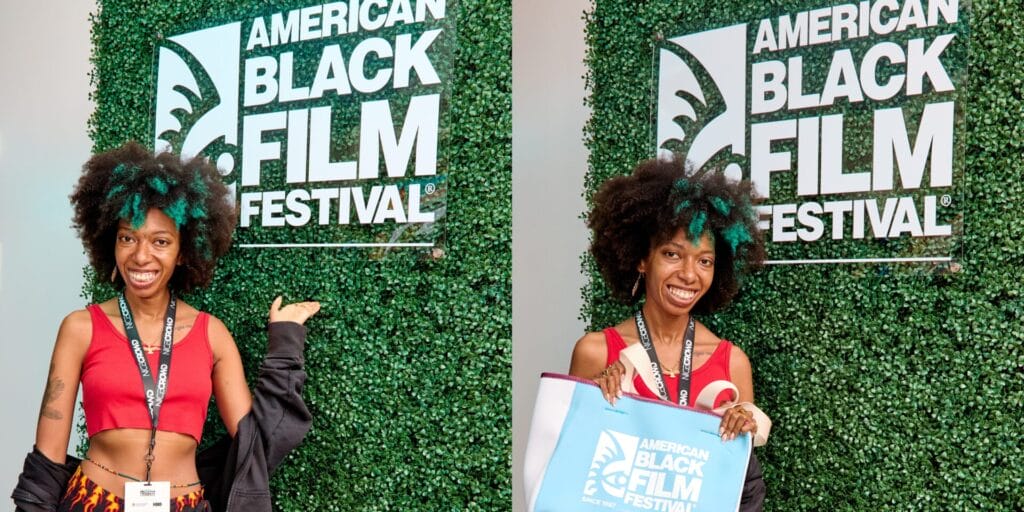By: Olivia Peace, Contributing Writer
Toni Morrison said that the function of racism is distraction. “To keep you explaining over and over again, your reason for being… there will always be one more thing.” That sentiment goes double for Black queer and trans people. And so, sometimes, when caught in the deepest delusions of other people, I feel like I’m a spokesperson. An unpaid operative standing at a plastic podium, there to answer for the entire Black queer community. I’ve got a running list of the types of questions that I often get confronted with in The Field:
- “Why do things have to be so specific? We need more unity in the Black community. Why do you have to add all this other stuff in?”
Or the parallel question:
- “The queer community is already such a vulnerable minority, why segregate yourself even further? Can we even afford that at A Time Like This?”
This shade of inquiry usually hangs in the air when it comes to defending the worthiness of investing in Black queer community spaces. Nevermind that it’s always “A Time Like This” if you are both Black and queer pretty much anywhere in the world. It’s the specificity that causes the upset. We are still surrounded by a culture that tells us that being specific is a bad investment. That it doesn’t have “reach.”

And so, by the time DaShawn Usher at GLAAD invited me to be an ambassador at the American Black Film Festival, I already knew what I was headed towards. It was an immediate yes. DaShawn, Julian, Kayla and GLAAD’s growing Communities of Color & Media team are always up to something. I first met them when I was asked to be a fellow in GLAAD’s inaugural Equity in Media and Entertainment Initiative cohort for filmmakers. What followed was a series of events-we had GLAAD Honors and The Black Queer Creative Summit, along with some weekend pop-ins, zoom calls, and kikis that have put more than a smile on my face. During that year, our 10 person cohort got to meet Black queer people from all over the United States-some at times even traveled overseas to be in community for a few short days. The whole process left me with some crucial new friends.
There’s a way that spending time in fellowship in a Black queer space as a Black queer person can induce a feeling similar to being on vacation. It’s such an understatement to liken that to just being able to “be yourself.” Which self?
It’s more like finding a trap door. In certain environments where the right love is present, the most neglected aspects of your identity are appreciated and understood. You’ll find that there’s so much more space within yourself to observe, explore, and make peace with when you’re not worried about small aesthetic departures-like how your body hair will be perceived. Or how your own voice comes out of your mouth. There’s magic that can happen when you’re not put in the unfortunate position of being the first whatever that someone has ever encountered.
The American Black Film Festival has been a historic gathering space for Black artists since the late 90s, but this specific gathering space for Black queer artists is the first of its kind within the festival’s history. It feels right on time. And so, despite torrential downpours pummeling the city at the start of the week, on the day of the Queer Lens Brunch the sky held its rain. Folks filed into the conference room at the Royal Palm meekly, excitement already in the air. In a room full of adults, it felt like the first day of school somehow. As I loaded up my own plate with potatoes, I kept running into people I knew. It dawned on me as I headed to my seat that I’d met so many sweet people just over the past year.

Once everyone was settled, there was a short screening of some projects that had been supported by donations from kin like Sidra Smith during a generous impromptu moment at GLAAD’s Black Queer Creative Summit last fall. Each piece centered Black queer people, but no two were the same. The event was followed by a Q&A with the filmmakers where everyone got to chat about their process and plans for the future.
It’s deeply poignant to realize that young people are already able to access so much more than I had growing up. We’re no longer stuck at step one of making only coming of age films about coming out. “Constantly explaining,” constantly pinpointing the source of conflict as uniquely attached to us. Stories that weathered that introductory work were and are no doubt still important-some of them saved the lives of the very people at these brunches today. Some helped kids with no agency in towns of all sizes to feel like one day life might open for them too. But now, in this room, we’re able to be inspired, and maybe even emboldened by our own specificity.
During the next talk Alexandra Grey, Jonica Booth, and Jussie Smollett spoke candidly in a panel moderated by Sidra Smith about their individual journeys as Black queer artists. Towards the close of the panel, Jonica communicated her fears about being pigeonholed into only playing queer characters. In response, Jussie offered the perspective that queerness is a category with so much potential-there’s no way to be constrained by it because you can truly be anybody. As an actor in a queer role, you are still capable of anything. A trapdoor instead of a box.

So yes, on the surface, there were your typical pans of eggs and fruit and peach bellinis. But from the moment you walked in, there was also this feeling of ease paired with genuine gestures of recognition, kinship, and hospitality. It’s in this private-public place that discussions about pronouns or families or relationships don’t feel like burdens. Suddenly everything feels juicy.
There are even moments of disagreement, heated and delicious in that way that denotes freedom- that this is a place safe enough to go deep to find your opinions from a place of assumed belonging. It’s spaces like the Queer Lens Brunch where people can finally relax into themselves enough to think and aspire bigger. With even more personal specificity.
When you don’t have to be the spokesperson at the podium, when you get to be around other people who have already walked major aspects of your journey, you get to be whole. Surrounded by mirrors on a level ground so you can more clearly witness yourself. Even if it’s only for an afternoon.













